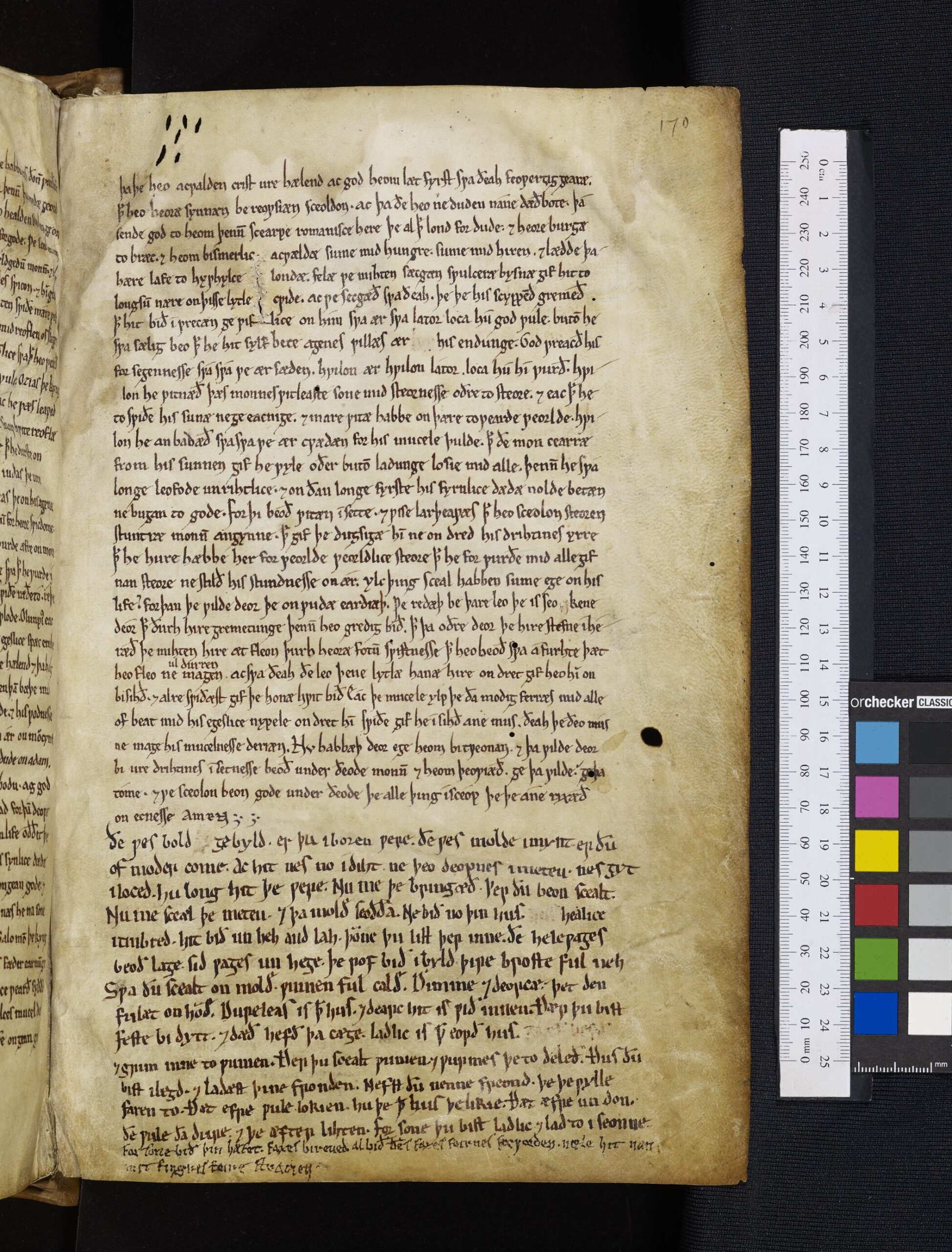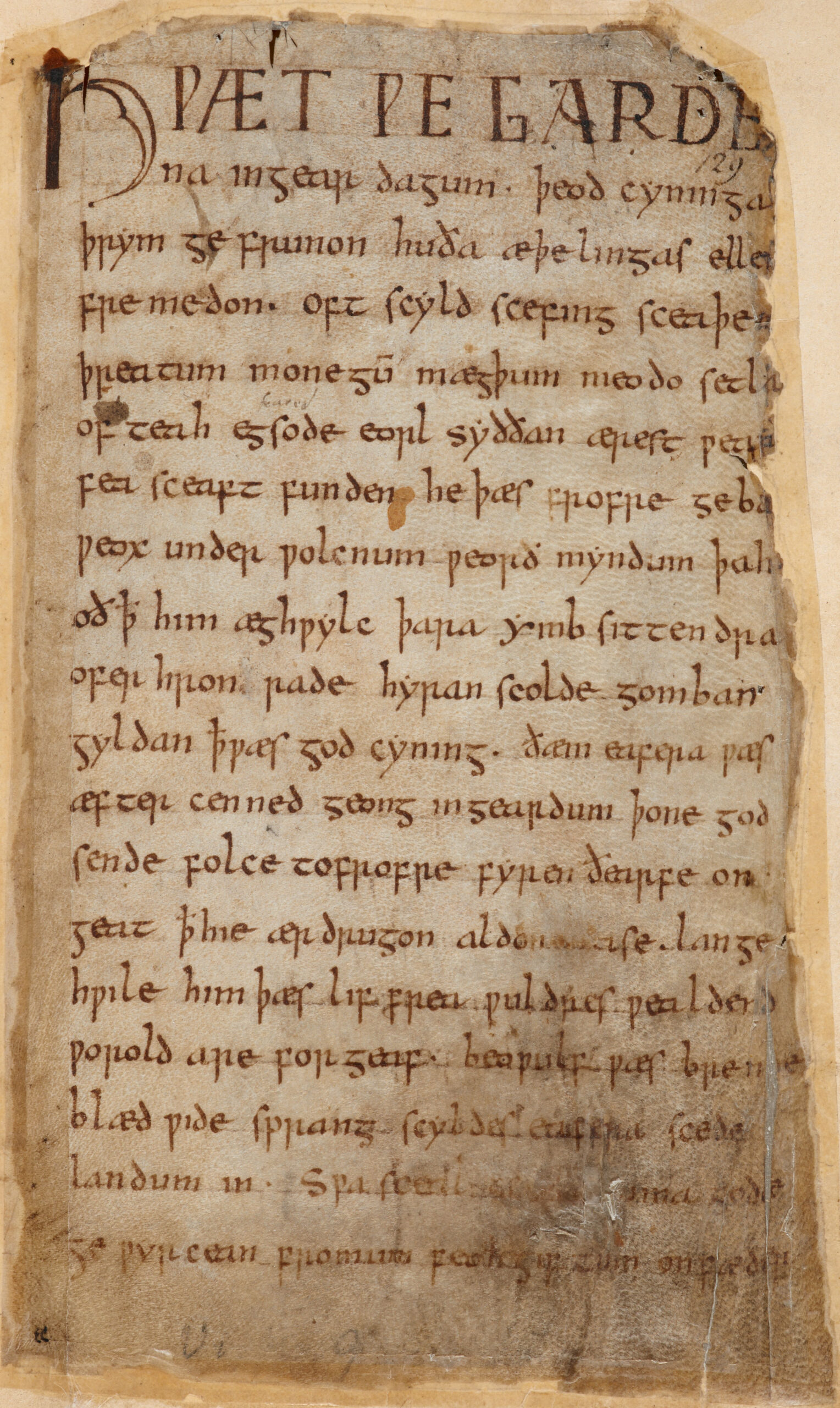Briefly, I will discuss two Old English works in which females are either granted some form of agency—such as in the case of the “Angel of Death”—or in some way intertwined with the notion of death. To begin, “The Grave” is an Old English found at the bottom margin of MS Bodleian 343, f. 170v (Figure 8). Within the poem, the narrator actively describes the process of birth, beginning with one’s “mother,” to the time of an individual’s death, where they are sealed beneath the earth. The poem details a process by which a subject is inside of an underground grave, gradually transitioning to an existence that is not quite “living” and ending with: “For soon your head is bereft of hair, all the fairness of your hair is scattered, and never, no one will stroke it softly with their fingers” (For sone bið þin hæfet faxes bireued; al bið ðes faxes feirnes forsceden; næle hit nan mit fingres feire stracien) (trans. Oberman 2017). As with the case of the “Angel of Death” in Ibn Fadlan’s account of the Rus’, we may observe a distinct role of the female entity. In the case of “The Grave,” it is at the beginning of one’s life, while according to Ibn Fadlan, it is at the end.

The Grave.
Bodleian Library MS. Bodl. 343, fol. 170r.
(source: Bodleian)
The funerary tradition in which the Viking Age “Angel of Death” performs also parallels that of the Old English poem Beowulf. This ninth-century poem is contained within Cotton MS Vitellius A XV, otherwise known as the Nowell Codex (Figure 9). Within lines 2821-3182 of Beowulf, a “meowle” (woman) is described as singing a “sorrow-song,” which details her uncertainties and fears now that the male warrior, Beowulf has died. The focus on a female figure within these lines suggests that this “Geatish woman” comprised an essential performative component of Beowulf’s funerary service. While the mention of the “Geatish woman” within Beowulf is fleeting, it is possible that she functioned as an Old English moirologia—a professional mourner—rather than as an arbitrarily chosen individual. While the true importance of the “Geatish woman” in the construction of militaristic practices remains obscure (just as that of “the Angel of Death,” her mention is worth taking note of, nonetheless.

Beowulf
British Library Cotton MS Vitellius A XV, fol. 132r.
(source: Wikimedia and British Library)
« Previous | Home | Next »